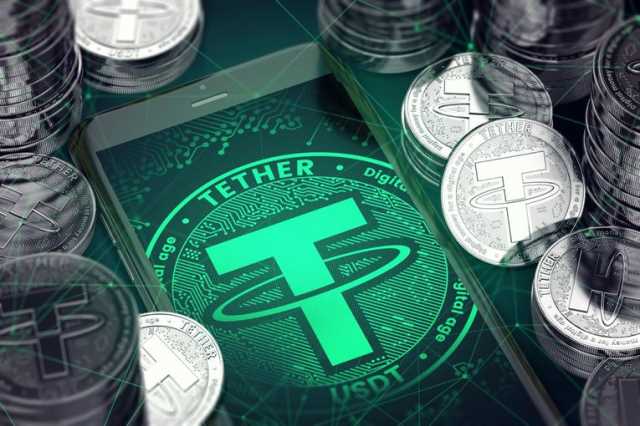29 May Our New Reports On Regulation Of Cryptocurrency Around The World
Content

The pure currency aspect of it is a huge market on its own, but a drop in the bucket of the total applications of crypto and blockchain technology today. As for regulatory frameworks, many countries are still trying to figure out how to best regulate this asset class and, in some cases, they are applying Money Service Business regulatory frameworks to all crypto-related products and services. Overall, however, volatility would emanate from the fluctuations in market pricing for non-stablecoin cryptocurrencies; and regulations would only strengthen the consumer protections and the mitigation as well as the monitoring of transaction flows for potential illicit activity. Another tension point for AML laws is the emergence of decentralized finance (“DeFi”).

In November 2019, a legislation passed by German parliament allows the banks to sell and store cryptocurrencies starting from 1 January 2020. On 1 April 2014 PBOC ordered commercial banks and payment companies to close bitcoin trading accounts in two weeks. According to the Library of Congress “Under article D.7.3 of the Regulatory Framework for Stored Values and an Electronic Payment System, issued by the Central Bank of the United Arab Emirates in January 2017, all transactions in “virtual currencies” are prohibited.” The Central Bank of Bolivia issued a resolution banning bitcoin and any other currency not regulated by a country or economic zone in 2014. The U.S. Treasury classified bitcoin as a convertible decentralized virtual currency in 2013.The Commodity Futures Trading Commission, CFTC, classified bitcoin as a commodity in September 2015.
In A Country Shadowed By Death, God Gets A Pass Why?
Wyoming too, exempted the developers of cryptocurrencies from securities laws, if they met certain conditions in 2018. The U.S. dollar remains the world’s reserve currency, and Congress’s approach to the cryptocurrency industry could inform that of other countries—making the United States a standard-bearer. In addition to wrapping their heads around the fast-moving world of cryptocurrency, regulators must now create clear rules of the road to balance innovation with mitigating risks. The ability of these digital currencies to undermine control of the monetary system and thus erode sanctions power presents a particular risk to the United States.

And then, of course, you also need regulation to prevent financial crime and scams, just like we have in other parts of the financial-services industry. As blockchain and cryptocurrency become more prevalent in the private sector and among consumers, governments globally are learning how to implement regulations across industries. Insider Intelligence takes a closer look at the technology’s use within financial services as part of our Banking coverage. Along with turning heads of businesses, financial institutions, and governments all around the world, the technology’s decentralized nature is raising regulatory concerns and questions.
Future Of Money
However, it did not provide clarity on whether stablecoins fall under federal commodities and securities laws. Bitcoin and cryptocurrency is not legal tender in Brunei Darussalam and are not regulated by AMBD . It is not protected under the laws administered by AMBD.AMBD however, advised the public not to be easily enticed by any investment or financial activity advertisements, and to conduct due diligence and understand the financial products properly before participating. Cryptocurrencies including bitcoin are not officially regulated in Pakistan; however, it’s not illegal or banned. As of 16 January 2021, the State Bank of Pakistan has not authorized any individuals or organizations to carry out the sale, purchase, exchange, and investment of virtual currencies, coins, and tokens.
The first major cryptocurrency company to list its shares on a U.S. stock exchange, Coinbase is a platform that allows people and companies to buy and sell various digital currencies, including Bitcoin, for a transaction fee. They predicted that there will also be requirements around the process of creating new stablecoins, security systems to protect privacy and data and consumer protection measures. Separately, the Treasury Department is also preparing to impose rules intended to prevent cryptocurrency from being used in illicit activity such as money laundering and tax evasion.
Crypto Around The World
Meanwhile, some industry leaders have described the most prominent proposal to date, the known as the STABLE Act, as a “disaster,” arguing that it would stifle innovation and prevent individuals from participating in cryptocurrency networks. Those numbers sound huge, but there are actually many, many more than that because lots of crypto products are not currencies and lots of cryptocurrencies are too small to be part of mainstream exchanges. Sometimes these are representative of ownership in decentralized autonomous organizations, which are organizations that share governance rights and returns to a committee of participants by allocating them tokens — a bit like stock shares. There are project-specific tokens used in specific online games or among individual communities. There are NFTs, which are unique non-fungible tokens that have been used as representing ownership over things like digital artworks.
- As blockchain and cryptocurrency become more prevalent in the private sector and among consumers, governments globally are learning how to implement regulations across industries.
- North Macedonia is the only European country so far to have an official ban on cryptocurrencies, such as Bitcoin, Ethereum, and others, in place.
- The SEC seems to believe that the real problem is that the underlying markets where they’re trading are not safe, said Brito.
- Last month, after China effectively banned mining and trading Bitcoin, Toomey argued it was “a big opportunity to the U.S.” to become a global leader in cryptocurrencies.
- They object to Raimondo’s recent comments that European legislators who are hoping to pass tech competition and online safety laws will end up unfairly targeting major U.S. companies.
However, stricter regulation would almost certainly hit prices in the short term — partly because so many people are scared of it. The very idea of regulation has become somewhat of a bogeyman in cryptocurrency circles. As a result, crypto prices tumble even on rumors of large-scale regulatory moves. Many argue that criminals use the anonymous nature of crypto trading to launder their ill-gotten gains, making regulation essential. There’s a fear that cryptocurrency cash is being used to finance terrorism or funnel money from illegal activities. Between China’s blanket ban on cryptocurrencies, and the US SEC indicating that regulations for the greater good of the community wouldn’t be as restrictive relative to China, it can be rightly expected that new rules and compliance guidelines will arrive shortly. That said, the crypto ecosystem offers a diverse range of products like DeFi and IEOs , which make it difficult for regulators to build a common framework.
Why Congress Should Regulate Cryptocurrency Now
The virtual exchanges and wallet providers should be under the “Anti-Money Laundering Directive,” Dombrovski said. “The commission will continue to monitor these markets together with other stakeholders, at EU and international level, including in the G-20.” FinCen, a bureau of the Treasury Department, said in 2013 that “virtual currency does not have legal tender status in any jurisdiction.” The Financial Stability Board, a global watchdog that runs financial regulation for G-20 economies, took a cautious tone in responding to calls from some countries to crack down on digital currencies.
Purchases of goods with bitcoin or conversion of bitcoin into legal currency “realizes” the value and any increase in price will be taxable; however, losses are not tax-deductible. Due to a lack of government regulation and cheap and available hydroelectric power Georgia is a center for crypto mining. In 2016, Zug added bitcoin as a means of paying city fees, in a test and an attempt to advance Zug as a region that is advancing future Cryptocurrency Regulations technologies. Swiss Federal Railways, government-owned railway company of Switzerland, sells bitcoins at its ticket machines. In response to the parliament postulates, the Swiss Federal Council issued a report on virtual currencies in June 2014. The report states that since virtual currencies are not in a legal vacuum, the Federal Council has concluded that there is no need for legislative measures to be taken at the moment.
This framework increases consumer protection, defines crypto industry conduct, and introduces new licensing requirements. On November 23, the government announced its intention to introduce a new bill to the Indian parliament which would establish a new central bank-backed digital currency as well as ban almost all cryptocurrencies. Regulators can no longer ignore the potential transformative role cryptocurrencies will play in the future financial system. With competition over digital currencies among private companies and governments ramping up, the regulations established today will set the path for the future of global finance. I think we’ll see more regulation around messaging and communication, but there are also more structural questions. For example, one of the regulatory conversations is around stablecoins — crypto assets that hold nominally fixed values because they’re designed to just be used for moving money from one place to another in a fixed denomination. They’re typically backed by reserves in a way similar to how banks back their loans with deposits.
Blockchain Regulations In Europe
In 2018, FINMA stated that it would take a “balanced approach” towards the cryptocurrency industry and allow “legitimate innovators to navigate the regulatory landscape”. By June 2021, a record number of 100 Exchange Traded Products and crypto structured products were offered on the SIX Swiss Exchange with a total trading value of CHF 4.6 billion. As of March 2015, an official statement of the Romanian National Bank mentioned that “using digital currencies as payment has certain risks for the financial system”.
Cryptocurrency Regulations Around the World – Investopedia
Cryptocurrency Regulations Around the World.
Posted: Tue, 21 Sep 2021 07:00:00 GMT [source]
While the apps share a lot of similarities, they function as completely separate entities, with different registration, content policies, and regulations. Yet, while social media’s audience is widespread and diverse, just a handful of companies control a majority of the world’s most popular social media platforms. Meta, the tech giant formerly known as Facebook, owns four of the five most widely used platforms. Currently, there are over 4.5 billion people around the world who use some form of social media—about 57% of the global population.
While the AML/CTF Act was amended to address some aspects of cryptocurrency transfer and exchange in 2017, this amendment did not see the scope of AML/CTF regulation widen the border restrictions. At the time of writing, there appears to be no indication that any such further amendment to include border restrictions is being contemplated. More generally, with the rise of cloud-based Bitcoin mining enterprises in Australia, mining businesses should carefully consider cybersecurity issues in relation to mining activities. Under the Corporations Act, depending on the minimum amount of funds invested per investor and whether the investor is a “sophisticated investor” or wholesale client, an offer of financial products may not require regulated disclosure. There has also been a proliferation of lending activities in relation to cryptocurrency. To the extent these lending activities fall within the scope of the credit activities and services caught under the National Credit Consumer Protection Act , the relevant entities may need to hold an Australian credit licence or be otherwise exempt from the requirement to be licensed.
The International Monetary Fund (IMF) has recently published some recommendations on how to effectively regulate the cryptocurrency sector around the world.
In a recent blog post, the IMF acknowledgedthat crypto assets are rapidly revolutionizing thehttps://t.co/MYKFyxn9m3— Crypto News 10 (@cryptonews10_10) December 13, 2021
Cryptocurrency and exchange regulations in the EU are determined by individual member states, and are considered legal across the bloc. The world has become increasingly fascinated with cryptocurrencies and the ways they are enabling greater access, such as being able to send funds to remote places or securing capital for small businesses. Crypto is not legal tender in Georgia, but there is currently no regulation by The National Bank of Georgia preventing it being used in the form of a barter exchange. On 16 November 2013, Norman Chan, the chief executive of Hong Kong Monetary Authority said that bitcoin is only a virtual commodity. However, the authority will be closely watching the usage of bitcoin locally and its development overseas. On 5 December 2013, People’s Bank of China made its first step in regulating bitcoin by prohibiting financial institutions from handling bitcoin transactions. FinCEN had been receiving more than 1,500 SARs per month involving cryptocurrencies.Seventeen other countries have similar AML requirements.
For income tax purposes, the ATO views cryptocurrency as an asset that is held or traded . The SEC’s role in the process is still to be determined, a Republican policy staffer said. But the commission would continue its responsibility of monitoring entities that raise money — in this case to develop a digital commodity project, ensuring that they abide by the relevant securities laws.
Absent decisive action, the U.S. market may instead be governed by foreign frameworks. House Committee on Financial Services hosts a hearing on cryptocurrencies and financial technology, on the heels of a Treasury Department report on stablecoins published last month.
Firms can simply rely upon their existing QFi licences in order to provide cryptocurrency-related products and services. Firms must, however, comply with an extensive range of EU legislation and rules including AML/CTF, CRD/CRR, EMD2, MiFID II, PSD2, compensation, margin, deposit, and sanctions obligations. Approved a motion that directed the Federal Council to adapt existing provisions to include cryptocurrencies. In September 2020, Switzerland’s parliament passed the Blockchain Act, further defining the legalities of exchanging cryptocurrencies and running cryptocurrency exchanges in Swiss Law. While regulations are constantly evolving, there are no signs of significant additional legislation on the horizon. Recent updates to the PCMLTFA have yet to fully take effect and the requirement that MSBs register with FinTRAC will not come into effect until June 2021. It is likely that both the government and crypto exchanges will need time to evaluate how these legislative changes have affected the crypto landscape before considering additional legislation.
These signposts are relevant to crypto asset issuers, crypto asset intermediaries, miners and transaction processors, crypto asset exchanges and trading platforms, crypto asset payment and merchant service providers, wallet providers and custody service providers, and consumers. Significant enforcement actions by the SEC have included actions brought against Telegram and Kik. These actions highlight the SEC’s willingness to aggressively enforce U.S. securities laws in cases involving digital assets. In October 2019, the SEC filed a complaint against Telegram alleging that the company had raised $1.7 billion through the sale of 2.9 billion GRAMS (the company’s native cryptocurrency) to finance its business. GRAMS were to allow customers of the messaging service to use the token as a means of payment for goods and services within the Telegram ecosystem. The SEC sought to enjoin Telegram from delivering the GRAMS it sold, which, using the Howey Test, the regulator alleged were securities and were not properly registered. District Court for the Southern District of New York issued a preliminary injunction.
And like India, many countries have taken steps to launch their own digital currencies that are backed by the central bank. The Anti-Money Laundering and Counter-Terrorism Financing Act (AML/CTF Act) mandates that both individuals and businesses must submit reports where physical currency in excess of A$10,000 is brought into or taken out of Australia. This requirement is restricted to “physical currency”, which AUSTRAC has defined as being any coin or printed note of Australia or a foreign country that is designated as legal tender, and is circulated, customarily used and accepted as a medium of exchange in the country of issue. Although market commentary indicates that some governments have created or are attempting to issue official cryptocurrencies, the intangible nature of cryptocurrency remains a bar to cryptocurrency being captured by declaration obligations under the AML/CTF Act for the time being. Of particular concern to those dealing with cryptocurrencies is whether the relevant cryptocurrency constitutes a financial product triggering financial services licensing and disclosure requirements.
- The country’s Monetary Authority of Singapore licenses and regulates exchanges as outlined in the Payment Services Act .
- Meanwhile, cryptocurrencies are considered legal throughout the European Union , although individual governments may elect to impose their own oversight on exchanges.
- Miners, traders of bitcoins would be treated as businesses and would have to pay corporate income tax as well as charge a 17% VAT.
- While the AML/CTF Act was amended to address some aspects of cryptocurrency transfer and exchange in 2017, this amendment did not see the scope of AML/CTF regulation widen the border restrictions.
- More generally, with the rise of cloud-based Bitcoin mining enterprises in Australia, mining businesses should carefully consider cybersecurity issues in relation to mining activities.
- Citizens and legal companies, on the other hand, can acquire and sell crypto assets if they do so through exchanges and custodians licenced by the German Federal Financial Supervisory Authority.
- So far, countries in the EU have had their framework regulating this industry, with the majority of them going for a soft-touch regulatory framework.
Its value is unstable, and the Bitcoin network cannot process a large volume of transactions quickly and cheaply. On Capitol Hill, few lawmakers have as strong a grasp on the technology underpinning cryptocurrency as Foster, who has a Ph.D. in high-energy particle physics from Harvard University. He’s spent most of his time in Congress focused on technology issues, and he says he sees a lot of possibility in cryptocurrency as an “emerging technology,” although he is also worried about how bad actors use the cryptocurrency. A diverse cast of lawmakers are also likely to help shape the future of regulation for cryptocurrencies. Toomey, who will retire next year, has called on his colleagues and regulators “to recognize that open, public networks are here to stay,” and he has emerged an outspoken voice against excessive oversight and regulation of cryptocurrencies.
Cryptocurrency Bill Unlikely In Winter Session As Govt Still Undecided On Regulator
The IRS has been less vocal on cryptocurrency, though on Thursday, the Treasury said the tax agency would require disclosure of cryptocurrency transfers worth more than $10,000. Some in the industry believe the SEC should more clearly state what is a security — which requires a slew of regulations and investor protections — and what isn’t. But the SEC seems to be fine with what it has laid out so far and what enforcement actions it has taken, Brito said.
There has been a proliferation of product offerings from the Australian blockchain and cryptocurrency community, and the Australian approach to the sector has broadly remained supportive of new and innovative financial services and products using or transacting cryptocurrencies. In part, the expansion of the sector in Australia has been led by businesses in the payments, crypto asset, lending, investment and custodial services spaces. These actions are precursors to a more unified approach; in February 2020, the chair of the Switzerland-based Financial Stability Board stated that financial regulators must speed up the process of developing a comprehensive regulatory framework for cryptocurrencies. The letter, addressed to finance ministers and G20 central banks, called for global regulators to act now – particularly to look at the risks and benefits of stablecoins – to keep up with the rapid pace of innovation and change in the crypto market to avoid losing control of it. As of April 2017, cryptocurrency exchange businesses operating in Japan have been regulated by the Payment Services Act. Cryptocurrency exchange businesses have to be registered, keep records, take security measures, and take measures to protect customers. The law on cryptocurrency transactions must comply with the anti-money laundering law; and measures to protect users investors.
The world’s largest crypto exchange, Binance, initially launched in China but relocated its headquarters to the Cayman Islands in 2017 following the country’s crackdown on crypto regulation. Furthermore, China placed a ban on bitcoin mining in May 2021, forcing many engaging in the activity to close operations entirely or relocate to jurisdictions with a more favorable regulatory environment. Despite a large number of cryptocurrency investors and blockchain firms in the United States, the country hasn’t yet developed a clear regulatory framework for the asset class. The Securities and Exchange Commission typically views cryptocurrency as a security, while the Commodity Futures Trading Commission calls Bitcoin a commodity, and the Treasury calls it a currency. Crypto exchanges in the United States fall under the regulatory scope of the Bank Secrecy Act and must register with the Financial Crimes Enforcement Network . They are also required to comply with anti-money laundering and combating the financing of terrorism obligations.
Author: Tor Constantino


